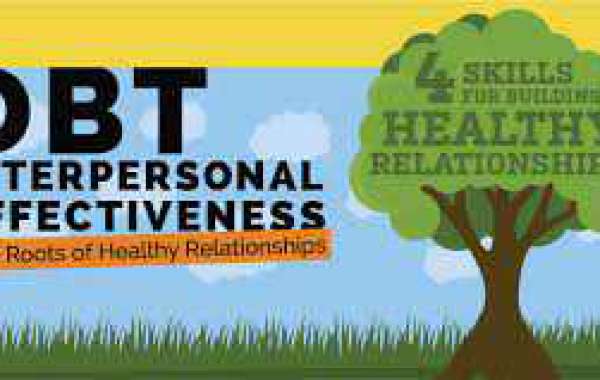DBT is a powerful method for improving interpersonal relationships. It involves examining one's beliefs about relationships. Often, the validity of one's beliefs can be tested with the Validation Quiz. When a human being feels validated, they are more likely to change their behavior. It can be a very powerful experience to validate another human being.
Body language
Body language is one of the most important tools when it comes to interpersonal relationships. It teaches us to communicate with others in a way that enhances our relationships. Moreover, it teaches us to navigate differences and conflict. It is vital to communicate effectively when dealing with others, especially when these differences are complex.
Dialectical behavior therapy is an effective method for improving interpersonal relationships. It helps individuals modify unhelpful thoughts, feelings, and behaviors. The therapy is designed to treat individuals with a variety of disorders, including borderline personality disorder (BPD) and chronically suicidal behavior. It focuses on two main areas: interpersonal effectiveness and emotion regulation. Interpersonal effectiveness helps people get what they want through effective communication.
As assertive communication requires direct requests, stating "no" clearly, and reinforcing positive responses (by smiling or saying thank you) with non-judgmental body language. It is also important to avoid distractions and judging others. When communicating with other people, make sure that you maintain eye contact.
Thinking dialectically
Dialectical thinking is a way of thinking that can help you find balance in interpersonal relationships. It emphasizes the idea that our actions are shaped by the way we perceive and interpret the world around us. When we approach things in an extreme manner, we can easily become overwhelmed, overly reactive, and stressed. Dialectical thinking emphasizes the tension between opposites, and focuses on finding the right balance between change and acceptance.
Dialectical relationships are characterized by multiple points of view that play off each other. For example, two people in a relationship might want to be open and vulnerable with their partner while also wanting to protect themselves from the negative effects of this openness. Relational dialectics uses four core concepts to understand interpersonal relationships: contradiction, totality, process, and praxis.
Optimism
Optimism in DBT interpersonal relationships is a skill that helps the person improve his or her ability to maintain positive emotions. This skill was developed in response to the need for people to be more understanding and empathic to others. It can be particularly helpful when the person is dealing with an interpersonal conflict.
This tool combines the concepts of Cognitive Behavioral Therapy with mindfulness. The goal is to correct problematic behaviors and enhance an individual's capacity to tolerate stress. It also helps the client improve their interpersonal skills. It starts with a focus on less intense issues, such as controlling one's own emotions.
Identifying needs
Identifying needs is an important skill for a healthy interpersonal relationship. Whether you are in a romantic relationship or are simply dating, you must be aware of your own needs and desires. If you are unable to express these needs, you may be causing more harm than good. You must learn how to communicate your needs effectively so that you can protect your relationship.
Using this skill will help you to develop strategies for acceptance and change. It will help you to understand yourself and others better. It will also help you to develop communication skills. Your therapist will work with you to identify your needs and help you improve your communication skills.
Communicating with others
A core skill of Dialectical Behavior Therapy (DBT) is the ability to communicate with others effectively. It is considered to be the second most important skill in DBT, behind mindfulness. Developing interpersonal effectiveness skills helps you make interactions easier and avoid being taken advantage of. This involves the use of sensory information and emotional regulation.
DBT teaches you how to effectively communicate with others and can help you improve your interpersonal relationships. Ultimately, these skills can help you improve your ability to get what you want out of a relationship. In DBT, you will learn how to communicate your needs and desires with others, while also preserving the relationship you have with them.








